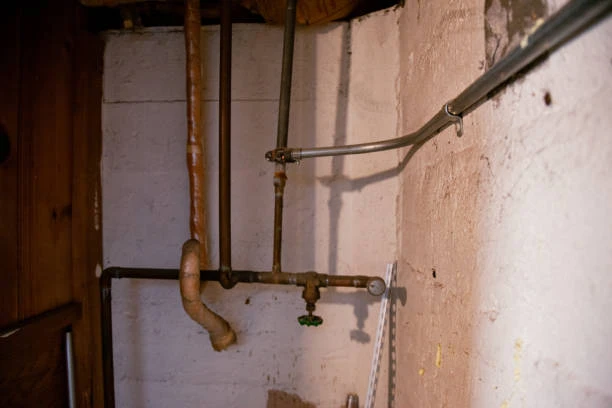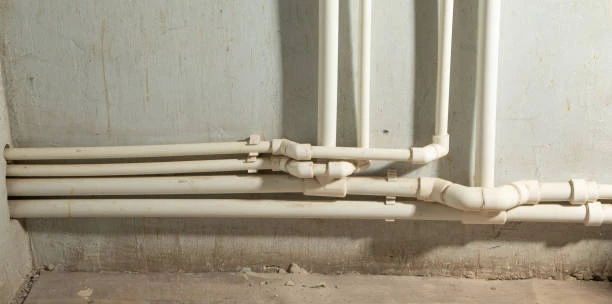Quick Start to Faucet Leak Repairs
Floor standing bath tap bring a touch of elegance and luxury to any bathroom. Their design makes them stand out as a modern choice, especially for freestanding bathtubs. However, like all plumbing fixtures, they can develop leaks over time. If left unattended, even small leaks can lead to water damage, increased bills, and corrosion. In this guide, we offer a quick start approach to faucet leak repairs, cover common issues, and provide tips on installation, materials, and the use of brass valves in such systems.
Frequently Asked Questions (FAQ)
1. Why does my floor standing bath tap leak at the base?
This often happens due to worn O-rings, loose fittings, or limescale deposits affecting the seal between the base and the floor or pipework.
2. Can I repair a faucet leak myself?
Yes, minor leaks can often be fixed at home with basic tools, such as a spanner and replacement washers or cartridges.
3. What tools do I need for basic leak repairs?
Adjustable spanners, screwdrivers, replacement O-rings or ceramic cartridges, and PTFE tape are typically sufficient for common repairs.
4. How do I know if the valve inside the tap is damaged?
If the handle feels loose, water continues to drip after turning it off, or temperature control is inconsistent, the valve likely needs replacement.
5. How can I prevent future leaks in my bath tap?
Regular cleaning, routine checks for limescale, and ensuring correct water pressure all help prevent future problems.
Brass Valves: Definition and Key Features
At the heart of many floor standing bath taps is the brass valve. This essential component controls water flow and temperature.
Key Characteristics of Brass Valves:
Strength and Longevity: Brass resists cracking and performs well under high water pressure.
Corrosion Resistance: Unlike iron or steel, brass does not rust, making it suitable for wet environments.
Hygiene Benefits: Brass has natural antimicrobial properties, especially important in sanitary settings.
Heat Tolerance: It can handle the high temperatures often associated with hot water taps.
Consistent Performance: Brass valves maintain a tight seal and deliver smooth operation for years.
These qualities make brass valves a reliable choice for bath taps that are used frequently.
Common Applications and Industry Use
Floor standing bath taps, paired with durable brass valves, are used across a variety of settings due to their visual appeal and functionality.
Most Common Applications:
Residential Bathrooms: Especially with freestanding bathtubs, these taps add a contemporary, high-end touch.
Luxury Hotels: Widely used in modern hotel suites to elevate the aesthetic experience for guests.
Spas and Wellness Centres: Their spa-like look and sturdy design make them a preferred option in these environments.
Showrooms and Model Homes: Often used to demonstrate a premium bathroom setup.
Architectural Projects: Favoured by interior designers for use in upscale developments.
The growing demand for both form and function has made floor standing bath taps a popular fixture in both domestic and commercial settings.
Buying Guide: Choosing the Right Floor Standing Bath Tap
When selecting a floor standing bath tap, it’s important to consider more than just looks. Durability, materials, and proper certifications will ensure long-term reliability.
1. Material
Always choose taps made from solid brass or stainless steel. Avoid models made with plastic internals or zinc alloy bodies, which are more prone to wear and leak.
2. Valve Type
Look for taps that use brass valves or ceramic disc cartridges. These offer smooth operation and are less likely to leak over time.
3. Finish
Chrome, brushed nickel, and matte black finishes not only complement modern bathroom designs but also provide protection from water spots and corrosion.
4. Certifications
Select taps that comply with recognised standards like ISO, WRAS, or NSF. These ensure safety, performance, and water efficiency.
5. Spout Height and Reach
Make sure the spout comfortably reaches into your freestanding bathtub without splashing. Proper sizing improves user experience and water flow control.
Installation Tips for Floor Standing Bath Taps
Correct installation is essential to prevent leaks and ensure reliable operation over time. Floor standing bath taps require careful planning due to their visibility and connection type.
Step-by-Step Installation Tips:
Plan Ahead: Measure your tub and floor area to ensure the tap aligns perfectly with the bath’s edge.
Reinforce the Base: Use a solid mounting bracket or anchor bolts to keep the tap stable on tiled floors.
Check Pipework Access: These taps often require access from underneath the floor; prepare pipe channels before tiling.
Use Thread Sealant: Apply PTFE tape on all threaded connections to prevent leaks.
Test Before Sealing: Run water through the tap before sealing the base to check for leaks or loose fittings.
Avoid Over-Tightening: Brass fittings can crack if too much force is applied during installation.
Proper installation reduces stress on the tap body and minimises leak risks over time.
Brass Valves vs Plastic Valves: A Practical Comparison
Below is a simple comparison to help you understand the differences between brass and plastic valves, especially relevant when choosing fittings for floor standing bath taps.
| Feature | Brass Valves | Plastic Valves |
|---|---|---|
| Durability | Extremely durable and long-lasting | Lower durability; may crack over time |
| Corrosion Resistance | High; ideal for both hot and cold water | Susceptible to degradation with heat |
| Water Pressure Tolerance | Performs well under high pressure | Limited tolerance; not suited for all systems |
| Temperature Resistance | Excellent resistance to high temperatures | Can soften or deform with hot water |
| Hygienic Properties | Naturally antimicrobial | Lacks bacterial resistance |
| Cost | Slightly more expensive | Generally cheaper but less reliable |
| Best For | Permanent, high-use installations | Budget projects or temporary setups |
While plastic valves may be adequate for some low-use applications, brass valves remain the preferred option for premium and long-term solutions.
Conclusion
Floor standing bath taps are more than a stylish upgrade—they are an investment in your bathroom’s function and durability. Addressing faucet leaks quickly not only prevents water damage but also keeps your plumbing running efficiently. With proper maintenance, smart product selection, and quality brass valves, your bath tap will offer years of reliable service.
Understanding how to repair leaks, choose the right components, and install taps correctly ensures your system remains efficient and attractive. Whether you’re a homeowner, installer, or designer, staying informed about materials and industry standards helps deliver the best results.
Connect
IFAN is a trusted Chinese manufacturer of plastic pipes, fittings, and valves, with over 30 years of industry experience. Whether you’re looking for brass valves, copper fittings, or floor standing bath tap components, IFAN has the solution for your plumbing needs.
Our range of products is designed to meet diverse specifications with high quality, affordability, and reliability in mind.
For More Information:
- For more information,pls visit our webside https://waterpipefitting.com/
Pls Mailto: [email protected]
Whatsapp: +86 15088288323
We respond to emails or faxes within 24 hours. You can also call us directly with any production or technical queries.
IFAN Products International Standards
IFAN products meet a broad range of global and national standards, ensuring excellent quality control and performance:
Standards Include:
ISO 15874, EN 15874, ASTM F2389, DIN 8077/8078, GB/T 18742, NBR 15884, ISO 15494, EN ISO 15494, GB/T 19472, NBR 15494, ASTM 2846 (501), DIN 8079/8080 (502), ASTM F441/F441M SCH80 (503), DIN (504), DIN (505), GB/T 18993, AS/NZS 1477, CSA B137.6, NSF/ANSI 14, TIS 17-2532/1131-2535, BS 3505, BS 4346 (801), ASTM D1785 SCH40 (802), ASTM D1785 SCH80 (803), DIN (804), GB (805), GB (806), GB(901), DWV(902), ASTM D2665 (903), ASTM D2241, D2665, D2729, F441/F441M series, ISO 1452, EN ISO 1452, DIN 8061/8062, GB/T 10002, AS/NZS 1477, JIS K6741, CSA B137.3, and more.
This commitment ensures that all IFAN products are safe, dependable, and ready for international markets.














Recent Comments